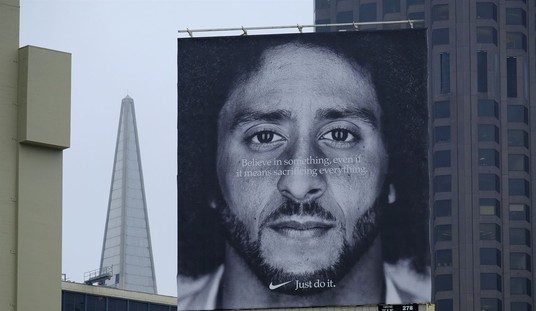Am reminded today why I rarely read headlines. #ContextIsImportant
The point I was making yesterday is this: The political system today is hyperpartisan. Both sides are at fault.
My dad & Reagan sacrificed political points for good public policy.
Jeb Bush’s definition of Reagan’s brand as one of “finding accommodation” and “common ground” is akin to summing up the Founding Fathers as rabble-rousers who really disliked taxes. He missed the essence of what Reagan provided for Americans
Reagan was more than a charismatic tax-cutter; he was an insurrectionist within the Republican Party, just as the Tea Party movement is in today’s establishment. In 1976, Reagan challenged Gerald Ford for the Republican nomination, and in 1980 he defeated the establishment candidate, George H. W. Bush, who later joined him on the ticket. His 1980 platform called for a return of the citizen activist; in doing so Reagan challenged the political establishment mentality, primarily by returning to this model of the servant-leader…
Bipartisanship for the sake of bipartisanship is what has provided unchecked power to the political establishment. And bipartisanship over principle is what has led us to runaway deficits and a fiscal mess that will take generations to fix. To suggest that Reagan would somehow embrace this insulated tyranny of the political class over grassroots activism is utterly false.
Too little attention is paid to the basic fact that Reagan was a man of his times and the times have changed. For instance, much of the GOP’s “extreme” opposition to tax increases stems from lessons learned from Reagan’s experience. Democrats promised to cut spending if Reagan raised taxes. They didn’t cut spending. Reality-based Republicans don’t want to repeat that mistake. Likewise, Reagan agreed to amnesty for illegal immigrants in 1986. Rather than be a one-time deal, it proved to be an incentive for more illegal immigration. And so on. The upshot of so much of the “Reagan was too reasonable for today’s GOP” blather assumes that Reagan wouldn’t have learned from what turned out to be mistakes — and that today’s Republicans shouldn’t either.
If you want to freeze presidents in amber and hold them against today’s political realities, virtually no former president could win their respective party’s primaries today. FDR was adamantly opposed to public-sector unionism. How would that work for him in today’s Democratic Party? John F. Kennedy was a foreign-policy hawk who didn’t care much about civil rights and believed in cutting taxes to stimulate the economy. Would he win a Democratic primary? Times change and politicians change with them. I have few doubts that given Reagan’s principles and the political realities of today, he’d be a mainstream conservative with deep sympathies for the Tea Party. But you can’t blow up the space-time continuum, and if Reagan were alive today, he couldn’t win the GOP nomination — not because he’d be too liberal but because he’d be 101 years old.
President Barack Obama thinks Republicans are in the grips of a “fever.” Only if they can be coaxed back to rationality, through the calming effects of his reelection and perhaps some aromatherapy and a deep-tissue massage, will Washington ever work again.
By work, he means pass his priorities, of course. That is the operative definition, too, for all the liberal analysts rending their garments over the breakdown of our governing institutions. If only everyone could sit around a table and agree that President Obama is the personification of reasonableness, the country’s faith in government could be restored…
The deadlock on the more consequential matters is a function of the conflict of visions. The mindlessly obstructionist, heedlessly irresponsible Republicans in the House have written their vision into a comprehensive budget and passed it twice, knowing full well that Senate Democrats would reflexively say “no.” The budget embodies a partywide consensus on an affirmative agenda that will quickly be taken up should Romney win the White House, to the howls of almost everyone now complaining that nothing gets done in Washington.
By that time, partisan obstruction will no longer be an offense against good government, but the highest duty of all patriotic lawmakers.
That’s one problem with the current complaint about political “polarization” -– and the dominant Obama narrative, in which he comes to town seeking to transcend partisan differences only to discover the “hyper-partisan” Republicans unwilling to play ball. The truth is we were never going to get universal health care without a huge nasty partisan fight — Republicans don’t want it. And we are are never going to alter the structure of collective bargaining without a huge nasty partisan fight–for unions it’s an existential battle. Yet both are worth doing. If they could be achieved by bipartisan compromise they would have been achieved a long time ago …
The anti-polarizers’ fallacy is that progress is always achieved in the center. Sometimes that’s true (e.g., the 1983 Social Security fix). But equally often progress comes when one side convinces voters and defeats the other side. Sweeping Democratic victories in 1932 produced the New Deal. A lopsided Dem majority (plus reaction to the JFK assisination) gave us civil rights laws, Medicare, and the Great Society. None of those were compromises. They made some people really angry!…
Polarization, in this model, isn’t the byproduct of a fight over “allocating loss.” Instead, polarization is useful, in an almost evolutionary sense, because it can help resolve unresolved issues like incomplete health care coverage, or illegal immigration.**** Both are pressing problems. They need to be solved. Until they’re solved, elections will continue to be about them, at least in part. But they’re not going to get solved in the center. (Sorry, Fareed!) They’re much more likely to get solved–or at least resolved–when one side in a polarized contest wins, brutally defeating both its polarized opposition and the champions of mindless bipartisanship.
The old adversary culture of the intellectuals has turned into a mass adversarial cynicism. The common assumption is that elites are always hiding something. Public servants are in it for themselves. Those people at the top are nowhere near as smart or as wonderful as pure and all-knowing Me.
You end up with movements like Occupy Wall Street and the Tea Parties that try to dispense with authority altogether. They reject hierarchies and leaders because they don’t believe in the concepts. The whole world should be like the Internet — a disbursed semianarchy in which authority is suspect and each individual is king…
I don’t know if America has a leadership problem; it certainly has a followership problem. Vast majorities of Americans don’t trust their institutions. That’s not mostly because our institutions perform much worse than they did in 1925 and 1955, when they were widely trusted. It’s mostly because more people are cynical and like to pretend that they are better than everything else around them. Vanity has more to do with rising distrust than anything else.
It was the first “protest” vote I’ve ever cast, and it felt … well, it felt good. Suddenly I understood a bit better why the Ross Perot or the Pat Buchanan or the Ralph Nader voters did what they did.
They thought the system was so broken that they couldn’t sit out but also couldn’t stomach voting for a conventional candidate at a time of unconventional problems.
Do I think a Ron Paul presidency is ever possible? No, I don’t. But I do want some of the Pauline virtues of candor and non-poll-tested conviction to play a larger role in our politics…
What I really want, though, is a party and a politics that’s commensurate with the problems and possibilities of the country. We’ll get there one day — and then we can focus on progress, not protest.
Visit msnbc.com for breaking news, world news, and news about the economy








Join the conversation as a VIP Member